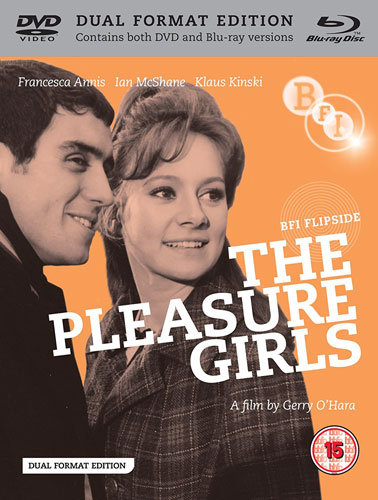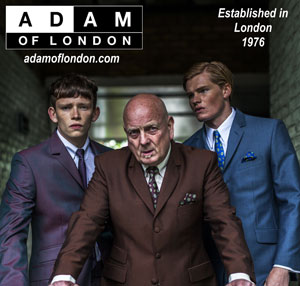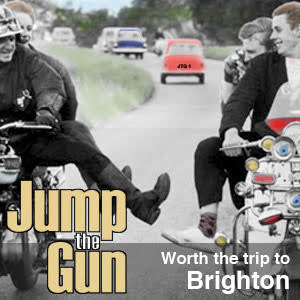
A ‘60s teen flick featuring Lovejoy, an infamous character from Coronation Street and Klaus Kinski? It has to be The Pleasure Girls.
In a London not quite swinging, Gerry O’Hara’s movie is similar to other movies of the day, whilst at the same time being very different. Mot least because everything happens over the course of a weekend as relationships crumble when the darker sides of the male characters come to the fore.
But at the start, The Pleasure Girls is as happy as any movie of the era. Sally (Francesca Annis) is a ‘posh’ country girl, new to the capital and ready to start a career as a model. It’s the 1960s. Of course she is.
She moves in with friends Marion (Rosemary Nichols), Dee (Suzanna Leigh), Angela (Anneke Wills) and Cobber (Colleen Fitzpatrick), along with gay friend Paddy (Tony Tanner). Brave, as homosexuality was still outlawed back then.
The plot is based around their relationships. Sally gets hooked up with Keith (Ian McShane) at a party, but refuses to give in to his obvious advances. Marion is pregnant with the child of gambler Prinny (Mark Eden), Dee is chasing money as ‘the other woman’ of slum landlord Nikko (Klaus Kinski), Cobber spends all her cash trying to remove her Australian accent for a film career and Angela runs around (unsuccessfully) looking for the right man. Finally, Paddy is content being everyone’s friend, until he’s caught in a ‘shocking’ clutch with boyfriend Ivor by Sally. It sounds confusing written down, but it unfolds more clearly on screen.
Each of those relationships plays out individually, whilst occasionally overlapping. Keith uses both charm and desperation to get Sally into bed, Prinny sells Marion’s jewellery to fund his gambling, whilst making more enemies in the process.
Meanwhile Dee enjoys the high life, but not without seeing the misery and the violence of Nikko’s slums on their travels and the hatred those tenants have for him.
For a low budget movie, The Pleasure Girls isn’t bad at all. The storyline is clever and covers a wide spectrum of 60s society – from the grubby gambler to the cool photographer and the evil slum landlord. A gay relationship and a single mother are also thrown in, adding an edge to the film. Well, an edge in the mid-1960s.
Casting is hit and miss. Kinski works just about, but his English obviously wasn’t great back then. Suzanna Leigh is a little too ‘posh’ for her role too. But on the upside, McShane while Annis plays the London newcomer with some style too.
If you buy the BFI release of this, you’ll also get a hefty booklet, an export cut of the original film plus a couple of mini movies too. The first is The Rocking Horse from 1962, a 25-minute, mainly silent short about the relationship between a painter and a teddy boy and The Meeting from 1964, which is a brief, but slightly strange, encounter on a train platform. Odd but quite interesting.
Not the best Flipside release, but far from the worst and one worthy of a BFI reissue.
Find out more about the DVD/Blu-Ray at the Amazon website








